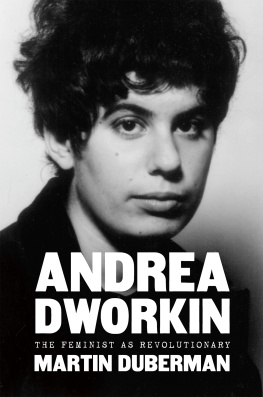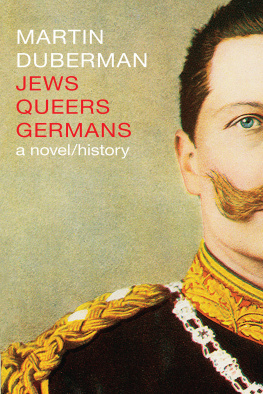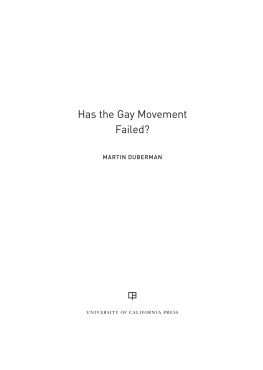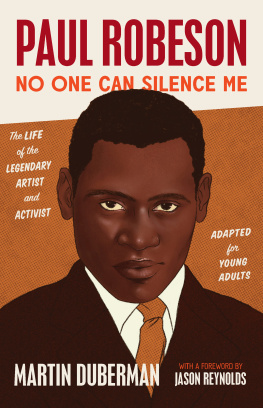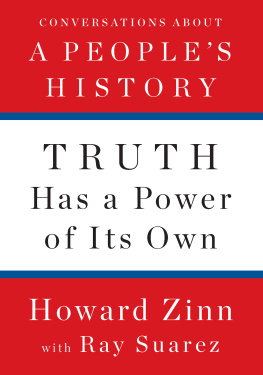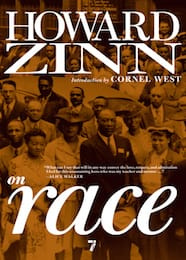HOWARD ZINN
A Life on the Left
Martin Duberman

HOWARD ZINN
HOWARD ZINN
The author and publisher gratefully acknowledge the kind permission granted to reproduce the photographs in this book, many of which were taken decades ago. Every effort has been made to trace each photographer and to obtain his or her permission. The publisher apologizes for any inadvertent errors or omissions and would appreciate being notified of any corrections that should be incorporated in future reprints or editions of this book.
2012 by Martin Duberman
All rights reserved.
No part of this book may be reproduced, in any form, without written permission from the publisher.
Requests for permission to reproduce selections from this book should be mailed to: Permissions Department, The New Press, 38 Greene Street, New York, NY 10013.
Published in the United States by The New Press, New York, 2012
Distributed by Perseus Distribution
LIBRARY OF CONGRESS CATALOGING-IN-PUBLICATION DATA
Duberman, Martin B.
Howard Zinn : a life on the left / Martin Duberman.
p. cm.
Includes bibliographical references and index.
ISBN 978-1-59558-840-1
1. Zinn, Howard, 19222010. 2. HistoriansUnited StatesBiography. 3. Zinn, Howard, 19222010Political and social views. I. Title.
E175.5.Z56D83 2012
973'.07202dc23
[B]
2012017592
Now in its twentieth year, The New Press publishes books that promote and enrich public discussion and understanding of the issues vital to our democracy and to a more equitable world. These books are made possible by the enthusiasm of our readers; the support of a committed group of donors, large and small; the collaboration of our many partners in the independent media and the not-for-profit sector; booksellers, who often hand-sell New Press books; librarians; and above all by our authors.
www.thenewpress.com
Composition by Westchester Book Composition
This book was set in Janson Text
2 4 6 8 10 9 7 5 3 1
yet again, for Eli
Contents
J ennie Rabinowitzs voice is the first to come through distinctly. In a 1973 tape that her son Howie (as family and close friends called him) encouraged her to make when in her midseventies, her heavily accented, strong, and warmly good-humored voice recounts, in jumps and starts, the poverty and oppression that marked her childhood years in the shtetl of Irkutsk, near Lake Baikal in Russia. As for Eastern European Jews, the daily struggle to survive was harsh, though in Irkutsk, most of the Jewish males were soldiers. The suffering and stubborn energy, the deeds and dreams of ordinary Jews that had once filled their individual and communal lives, have left behind few tracesa name, perhaps, mentioned in some yellowing letter, a broken headstone too weathered for the full inscription to be legible.
Jennies tape recording is far from a sustained account of her life. She starts a story, then abruptly goes back in time to begin another, itself abandoned midway. Only now and then does she pause long enough for at least a shadow outline to emerge. Her unhappy mother, Sophie Grabler, born in Ludmir, Russia, was forced at age fifteen by her own fatherhe slapped her hard in the faceto marry Isadore Rabinowitz, a soldier twice her age, and ultimately to bear him six children. Only later did Jennies mother confide to her that the marriage had been miserable (Jennie herself referred to her father as a no-goodnik). Furthermore, she bore the disgrace of causing her familys displacement. Shtetl Jews had to register officially every year, but at one point Jennies father fell ill and he passed the task to his wife, who somehow forgot to do it. As a result, the entire family, on forty-eight hours notice, was put on a train and forced to leave Irkutsk. They stayed for a year in her mothers childhood shtetl near Kiev (then part of Poland), where Jennie saw trees and ate fresh fruit for the first time. Then Jennies father and grandparents decided to leave for America, the rest of the family to follow in stages.
In 1909, it was fifteen-year-old Jennies turn. Accompanied by a brother and sister, they went through the transatlantic ordeal of steerage, mere dots in a massive migration that in the thirty years preceding World War I saw a third of Eastern Europes Jews leave their various homelands for the New World. The family found cheap living quarters in the back of a barbershop in Williamsburg, Brooklyn. Like so many immigrants, Jennies father eked out a living dragging a pushcart carrying fruits and vegetables through the streets, while her mother sewed buttons in a garment shop, earning seven or eight dollars a week. Jennie herself, her education having ended in the seventh grade, went to work sewing childrens coats by hand in a factory eleven hours a day, six days a week. She proudly recalls that she was one of the fastest workers and sometimes took home more than $20 in weekly payconsidered a gigantic sum among the poor.
Better still, she met a handsome, strongly built (Jennie herself was on the sturdy, soft side) fellow factory worker named Eddie Zinn, an immigrant from that part of the Austro-Hungarian Empire now known as the western Ukraine. Eddie, who stood five five, had only a fourth-grade education, but did, unlike Jennie, speak fluent Yiddish (Jennie soon picked it up). Both were warmhearted (though Eddie disliked blacks) andfor some undiscernible reason, given the hardship of their livesshared a cheerful outlook. The two quickly fell, and throughout their lives remained, in love. Eddie proposed and Jennie, age nineteen, accepted; yet when he failed to curtail his habit of gambling, she broke off the engagement. Eddie got the message, gave up his hobby, and the two were married in 1918. By then Jennies mother was dead from TB at the early age of thirty-five, her father had remarried within six months, and, when that wife soon died as well, had remarried again.
Jennie was a quiet person but always direct and forceful when she did speak, confident and grounded; Eddie seemed content to let her rule the roost. Strong-willedone of her sons has called her the brains in the familyshe was also a master of malapropisms; she would talk of buying monster cheese and told a friend about the problems she was having with very close veins. She would tell Eddie when he forgot something to try to remember, wreck your brains.
Both had tempers, and now and then a cup would be angrily smashed, but it was understood that no hitting would ever be tolerated, short of a light smack on the behind. Only once would that rule fail. They decided to splurge on a cardboard closet that came with instructions for assemblingunintelligible to them both. Eddie nonetheless was determined to put the closet together and kept trying, with mounting frustration. Jennie kept offering suggestions, all of which failed, making Eddie still more irate. When Jennie said he should bring the damned thing back to the store, Eddies anger broke and he hit Jennie on the head with one of the pieces of cardboard lying about. Jennie burst into tears. Eddie picked up the scattered pieces of the closet and left the house. Matters were soon patched up; the two really were loving soul mates.
Jennie and Eddie moved into a cold-water flatit did have a coal stoveon Fourth Street in Brooklyn. They also took in Jennies five siblings who were still single and needed a home (Jennie, the eldest, thought of herself as responsible for them, their primary caretaker). There was no such thing as a living room or a dining area nor, at first, even a bathrooma washtub in the kitchen served for cleaning both clothes and people. There was a toilet but no sink, bathtub, or shower. Paying for a telephone was, of course, out of the question, but they could be called to the phone at the candy store at the end of the block. For a long time, the family didnt even own a radiotill Eddie finally found a cheap, secondhand one. A literal ice box served as a refrigerator: the boys would go down to the ice dock, buy a five-or ten-cent chunk of ice, drag it home, and put it in a large basin; the melting ice would sometimes overflow during the night, rousing all hands for the wipe-up. Roaches were everywhere, and Howie never got used to them.


